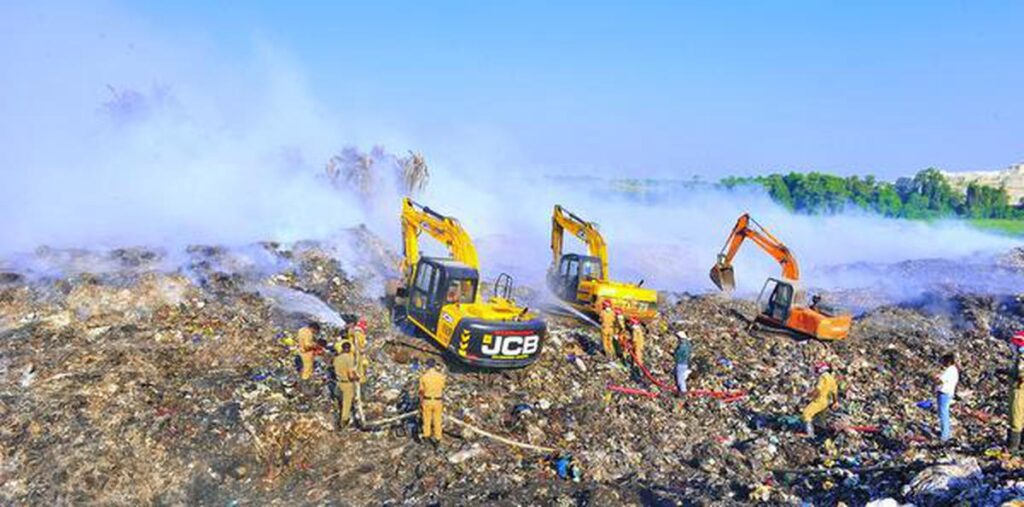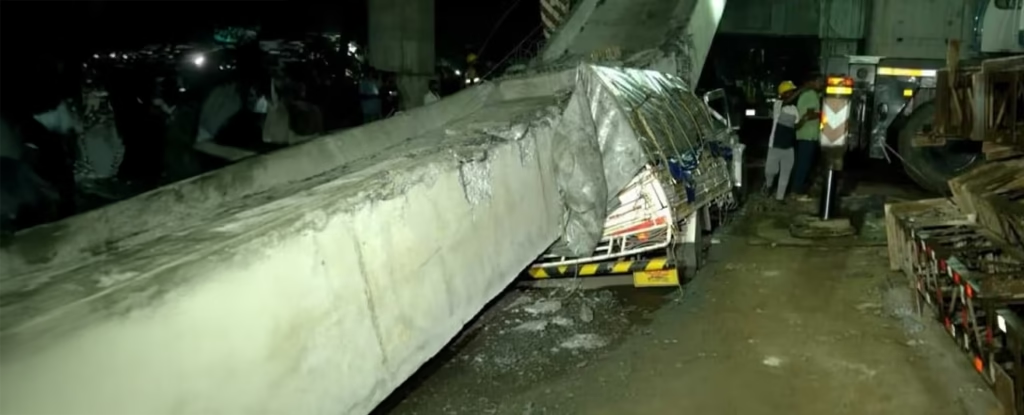Brahmapuram, a small village located on the outskirts of Kochi, Kerala has been in the news for all the wrong reasons in recent times. The waste dump in the village has been catching fire frequently, leading to severe air pollution and health hazards for the residents in the area. The problem of waste dump fires is not new to Kerala, but the frequency of such incidents in Brahmapuram has raised serious concerns. In this article, we will explore the reasons for waste dump fires and discuss measures to avoid them.
Understanding the Problem of Waste Dump Fires
Waste dump fires occur due to the spontaneous combustion of organic waste materials. The organic waste materials like food waste, paper, and garden waste undergo decomposition, leading to the production of methane gas. When this methane gas comes in contact with oxygen, it can ignite, leading to a fire. The fire can then spread rapidly, releasing toxic fumes and smoke, leading to air pollution and health hazards.
The waste dump in Brahmapuram has been catching fire frequently due to the accumulation of a large amount of untreated waste. The dump is not managed properly, and the waste is not segregated, leading to the mixing of organic and inorganic waste. The organic waste undergoes decomposition, leading to the production of methane gas, which is then ignited, leading to a fire.
Measures to Avoid Waste Dump Fires
Segregation of Waste: The first step in avoiding waste dump fires is the segregation of waste. The waste should be segregated into different categories like organic waste, inorganic waste, and hazardous waste. The organic waste should be treated separately, and the methane gas produced should be captured and used as a source of energy.
Composting: Composting is a natural process of decomposing organic waste materials, which can be used as a soil conditioner. Composting can be done at the source, i.e., at homes, or at a centralized location. Composting can help in reducing the amount of organic waste going to the waste dump and can prevent the production of methane gas.
Waste to Energy: The methane gas produced from the decomposition of organic waste can be captured and used as a source of energy. This can be done through the installation of biogas plants, which can generate electricity or heat. The waste to energy approach can help in reducing the amount of waste going to the dump and can prevent the production of methane gas.
Proper Management of Waste Dump: The waste dump should be managed properly, and the waste should be treated before dumping. The dump should be covered to prevent the mixing of waste with rainwater, which can lead to the production of leachate. The leachate can contaminate the groundwater and can lead to health hazards.
Conclusion
Waste dump fires can have severe consequences on the environment and health of people. The waste dump in Brahmapuram has been catching fire frequently due to the lack of proper waste management. The waste should be segregated, and the organic waste should be treated separately to prevent the production of methane gas. The waste to energy approach can be used to generate electricity or heat, and composting can be done to reduce the amount of waste going to the dump. Proper management of the waste dump is essential to prevent the mixing of waste with rainwater, which can lead to the production of leachate. It is the responsibility of every citizen to contribute towards waste management and prevent waste dump fires.









